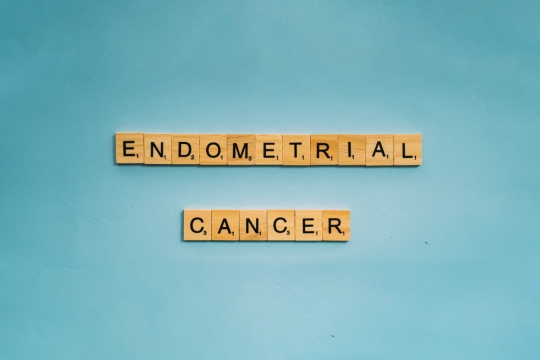What is the main cause of endometrial cancer?

Endometrial cancer is a type of cancer that originates in the lining of the uterus, known as the endometrium. It predominantly affects postmenopausal women, making it a significant health concern.

While various factors contribute to its development, understanding the main endometrial cancer causes is crucial for prevention and early detection.
Hormonal Imbalance and Estrogen Dominance
One of the primary causes of endometrial cancer is hormonal imbalance, specifically an excess of estrogen. Estrogen, a female sex hormone, plays a crucial role in regulating the menstrual cycle and maintaining the health of the uterine lining. However, when there is an imbalance, with elevated estrogen levels and lower progesterone levels, its risk increases.
Estrogen dominance can occur due to various factors, including obesity, hormonal therapies, and certain medical conditions. Obesity, in particular, leads to excess estrogen production in adipose tissues. Consequently, women with obesity are at a higher risk of developing it and must opt for an endometrial cancer diagnosis test without any delay.
Age and Menopause
Age is a significant factor contributing to the development of uterine cancer. Postmenopausal women, typically those over the age of 50, face an increased risk. As women age, the hormonal balance in their bodies changes, and the likelihood of hormonal imbalances, such as estrogen dominance, rises.
During menopause, the ovaries produce less estrogen and progesterone, leading to alterations in the endometrial tissue. The absence of regular menstrual cycles and the decline in hormone levels create an environment conducive to its development.
Genetic Factors and Family History
Genetic factors also play a role in the risk of endometrial cancer. Women with a family history of endometrial or colorectal cancers may have an increased susceptibility due to inherited genetic mutations, such as Lynch syndrome. Lynch syndrome is a hereditary condition associated with an elevated risk of various cancers, including endometrial or uterine cancer.
Additionally, certain genetic mutations, such as those in the PTEN gene associated with Cowden syndrome, can predispose individuals to endometrial cancer. Understanding one's family history and genetic predispositions can help in signs of endometrial cancer and taking preventive measures.

Endometrial Hyperplasia
Endometrial hyperplasia is a condition characterized by the excessive growth of cells in the endometrium. This abnormal proliferation of cells can lead to the development of endometrial cancer if left untreated. The risk of uterine cancer is particularly high in cases of complex endometrial hyperplasia with atypia, where abnormal cells are present.
Unopposed Estrogen Therapy
Estrogen therapy, often prescribed to alleviate symptoms of menopause, can become a risk factor when administered without the concomitant use of progesterone. Progesterone helps counterbalance the effects of estrogen on the endometrium, reducing the risk of cancer. Women undergoing estrogen replacement therapy without progesterone are at an increased risk of endometrial cancer.
Obesity and Lifestyle Factors
Obesity is a modifiable risk factor strongly associated with endometrial cancer. Adipose tissues produce estrogen, and excess body fat can lead to elevated levels of estrogen in the body. Maintaining a healthy weight through a balanced diet and regular exercise can help reduce its risk.
Aside from obesity, lifestyle factors such as a sedentary lifestyle, poor diet, and smoking can contribute to the development of uterine cancer. Engaging in regular physical activity, consuming a diet rich in fruits, vegetables, and whole grains, and avoiding tobacco can collectively contribute to a lower risk of endometrial cancer.
In conclusion, Endometrial cancer is a complex disease with multifaceted causes. Hormonal imbalance, age, genetic factors, endometrial hyperplasia, unopposed estrogen therapy, obesity, and lifestyle choices all play integral roles in its development. Understanding the endometrial cancer causes is crucial for both prevention and early detection, empowering women to make informed decisions about their health. Moreover, staying vigilant for symptoms and adhering to endometrial cancer treatment guidelines can significantly improve the chances of successful diagnosis and treatment. Regular health check-ups, family history awareness, and a healthy lifestyle are key components of reducing its risk. By addressing these factors, individuals can proactively protect themselves against this prevalent and potentially life-threatening disease.





